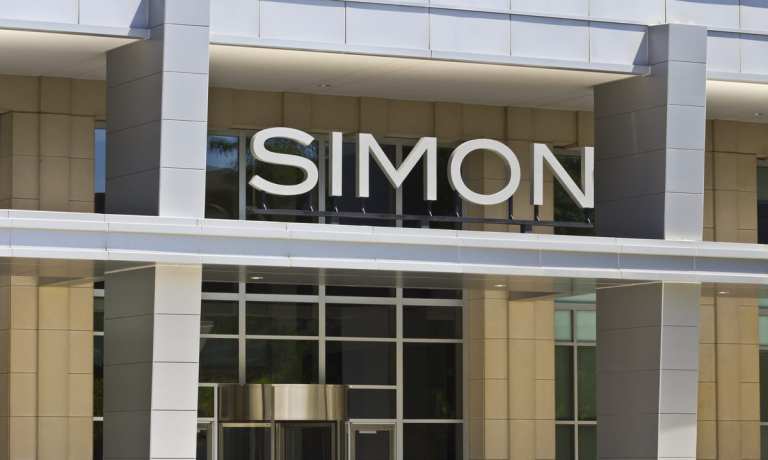Simon Property CEO Says Brick-and-Mortar Is Strong as eCommerce Is Flatlining

In his inimitable style, the billionaire CEO of the nation’s largest mall owner had a blunt message for investors Tuesday (Nov. 1) saying that Simon Property Group’s core business is strong and seeing no slowdown in demand for physical space.
“Brick and mortar is where the action’s at,” SPG Chair and CEO David Simon said on the company’s third-quarter earnings call, in which the Indianapolis-based retail landlord expressed concerns about the macroeconomic climate but said, contrary to oft-repeated eulogies, malls are far from dead.
“We have yet to see any pullback in opening new stores or renewals,” Simon said. “There’s been absolutely no impact. Where [retailers] are seeing the most pressure right now is in eCommerce.”
Retail Resilience
Unlike many of its large cap multinational peers, especially those with ties to consumers and retail, Simon Property showed unusual strength and confidence for the three months ending Sept. 30. Not only did SPG’s occupancy and base rent levels both increase 1.7% for the quarter, but the company also raised its earnings forecast and dividend for the quarter to come.
Additionally, Simon went out of his way to stress the point that his company had paid out $39 billion in dividends over the past 30 years, through numerous up and down economic cycles, and had emerged as a stronger, more astute and better operator as a result.
“Many have tried to kill off physical retail real estate and in particular enclosed malls,” Simon said, pointing to the closed store COVID-era in which naysayers argued physical retail was gone forever.
“However, brick-and-mortar retail is strong, and eCommerce is flatlining,” he said. “Why do I bring this up constantly? Well, because hopefully this will put an end to the so-called negative mall narrative, as you can’t pay those dividends without a strong underlying business.”
Beneath the Malls
For all its global investments in real estate, SPG is also a retailer, with direct and indirect stakes in dozens of brands ranging from JCPenney to Reebok to Nautica, Eddie Bauer, Aeropostale and more via its SPARC Group portfolio held with Authentic Brands Group.
For Simon, these so-called Other Platform Investments or OPIs are also performing well, as the company’s efforts to revive distressed brands that it acquires at a discount is proving to be a lucrative and growing side business.
“We have approximately $475 million of net investment within our Other Platform Investments,” Simon told analysts, noting the $300 million in cash it generates. “For those of you who like math, that is a 60% return on investment, and we believe the value of our investments in OPI is worth over $2 billion.”
As such, SPG said it plans to expand upon its asset management efforts, pointing to its recently announced strategic partnership with Jamestown, a real estate investment and management firm.
“We see great opportunity with this investment to capitalize on the growing asset and investment management businesses,” Simon said. “We expect to grow their asset management business and accelerate our densification opportunities.”
The deal that is expected to close prior to the end of this year.
While Simon said any CEO is “always worried about the macro environment,” he also assured investors that he does not want to see a recession and hopes there isn’t one but noted the “counter cyclicality” of such economic upheaval has historically offered his company great opportunities to acquire and redevelop distressed properties at attractive prices.
“I will tell you what gives me unbelievable confidence going into the next few years is the realization that, as we have been saying, don’t underestimate physical retail,” he said. “We feel really good because physical retail is where the action is. It’s where the return on investment is.”
For all PYMNTS retail coverage, subscribe to the daily Retail Newsletter.